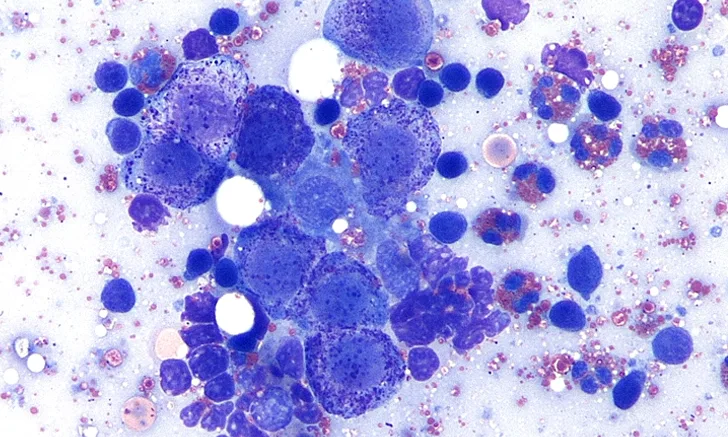Differential Clinical Staging for Dogs With Low- & High-Risk Mast Cell Tumors
Timothy M. Fan, DVM, PhD, DACVIM (Oncology, Internal Medicine), University of Illinois at Urbana–Champaign

In the Literature
Fejös C, Troedson K, Ignatenko N, Zablotski Y, Hirschberger J. Extensive staging has no prognostic value in dogs with low-risk mast cell tumours. Vet Comp Oncol. 2022;20(1):265-275. doi:10.1111/vco.12773
The Research ...
Cutaneous mast cell tumors (MCTs) are the most common type of malignant skin tumor in dogs.1 Predicting canine MCT behavior can guide therapeutic recommendations and provide realistic expectations for achieving long-term disease control or cure. Several positive or negative prognostic patient and tumor factors are typically used to predict aggressiveness of MCTs. Qualitative and quantitative assessment of prognostic factors can justify the magnitude of therapeutic interventions (eg, surgery, radiation, chemotherapy, receptor tyrosine kinase inhibition) for disease management; however, the role of prognostic factors in guiding the extent of diagnostic tests for clinical staging of canine MCTs is incompletely defined.
This retrospective study examined the outcome prediction value of diagnostic tests (ie, abdominal ultrasonography, spleen and/or liver aspiration, thoracic radiography, regional lymph node cytology) commonly recommended for complete staging in dogs with high- and low-risk MCTs. The study also evaluated the association between negative prognostic factors and development of distant metastases, as well as factors that may influence long-term survival.
Dogs diagnosed with high-risk (ie, presence of a negative prognostic factor [ie, high grade, lymph node metastasis, rapid growth, ulceration, recurrence, high-risk location]) MCTs were more likely to be presented with or develop distant metastases and achieved shorter survival times compared with dogs with low-risk (ie, no negative prognostic factors) MCTs.
Extensive clinical staging did not provide actionable prognostic value in dogs with low-risk MCTs. The authors concluded that extensive clinical staging in dogs with low-risk MCTs is likely unnecessary and does not improve prognostication.
These findings provide guidelines for improving clinical assessment of dogs diagnosed with MCTs of variable biologic behaviors.
... The Takeaways
Key pearls to put into practice:
MCTs in dogs can demonstrate divergent biologic behaviors, ranging from locally benign to distantly metastatic, that can often be predicted by identification of positive and negative prognostic variables.
Dogs with high-risk MCTs are more likely to develop regional and distant metastases and succumb to terminal disease burdens more quickly than dogs diagnosed with low-risk MCTs.
Clinical staging is important for determining the location and magnitude of cancer burden; however, the extent of diagnostic tests performed should be based on patient and tumor prognostic factors.